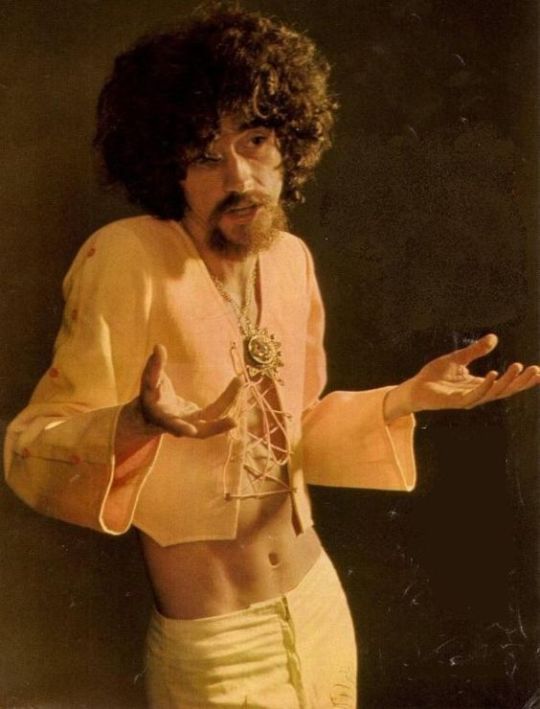#raul seixas
Text
Não vou te esquecer.
Não fique a temer
Pois o nosso amor não foi em vão.
Raul Seixas
35 notes
·
View notes
Text

Raul Seixas, circa 1976
29 notes
·
View notes
Text
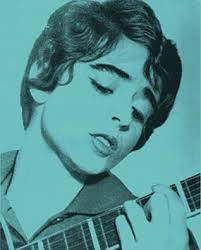
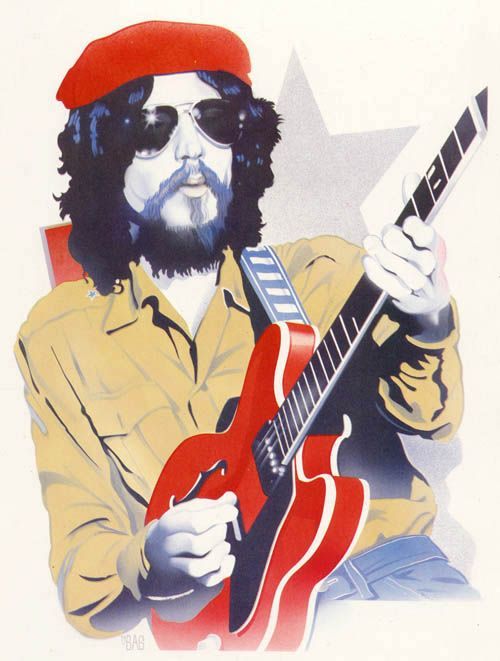
Cecilia Pantoja or Cecilia la Incomparable was a Chilean Tango Rock Jewish musician and one of the earliest and pioneer women rockers from the 60s.
Cecilia broke out as a soloist in the full glory of the New Wave, rising towards the mid-1960s as the biggest youth star of the time, although her style and repertoire did not fully respond to the mold of the movement. Cecilia acquired her own personality with a diverse catalog of songs ascribed to the Latin and European musical tradition.
has won one President of the Republic National Music Award in 2019, and has been dubbed "Queen of the gays and ladies of the night". Her most famous songs are "Baño de mar a medianoche", "Pure de papas" and "Aleluya"
--------------------------------------------
Raul Seixas was a Brazilian Baião Rock singer and composer, pioneer of Brazilian rock as he started his rock career in 1963. For this reason he is known in Brazil as the father of Brazilian rock and roll.
He was also a musical producer for CBS, Raul was a massive skeptic, deeply into agnosticism and philosophy (Metaphysics and Ontology) which is found in his a lot in his works
His most famous songs are "Metamorfose Ambulante", "Gita" and "Eu Nasci Há Dez Mil Anos Atrás" propaganda below;
"Este ícone nacional. Um homem de músicas tão marcantes que mudou a sociedade brasileira, não existe um pai que não seja viciado em Raul Seixas. Se o seu pai não gostar de pelo menos uma música do Rauzito ele está errado!!!
Vale lembrar de uma anedota de quando Jimmy Page morou alguns anos no interior da Bahia, vivia como um gringo qualquer numa cidade que quase ninguém conhecia ele, ele tocava de vez em quando numas rodas, e chegaram a pedir para ele tocar Raul Seixas, ele sendo gringo não sabia nenhuma, e o pessoal saiu falando que ele não era bom guitarrista (com razão).
Raul Seixas foi grande amigo do Paulo Coelho, inspirou e foi inspirado em várias obras. O homem foi um ícone!"
#cecilia pantoja#raul seixas#Latino rock tournament#round 1#polls#just between me and person reading the tags pls vote cecilia <3
32 notes
·
View notes
Text

A vida mal vivida, a ferida mal curada, a dor já envelhecida...
2 notes
·
View notes
Text
"eu não sou louco, o mundo é que não entende minha lúcides"
2 notes
·
View notes
Text
ℜ𝔞𝔲𝔩 𝔖𝔢𝔦𝔵𝔞𝔰 – 𝔊𝔦𝔱𝔞
#Raul Seixas#Gitâ#self titled#Format:#Vinyl#LP#Album#Country:#Brazil#Folk Rock#Blues Rock#Psychedelic Rock#Soft Rock#MPB#Released:#1974#70's#70s
9 notes
·
View notes
Text

Facebook: ROCK=Tributo AO ROCK e pop & etc.
9 notes
·
View notes
Text
Eu
Vou subir
Pelo elevador dos fundos, que carrega o mundo sem sequer sentir
Vou sentir
Que a minha dor no peito, que eu escondi direito agora vai surgir
Vou surgir
Numa tempestade doida pra varrer as ruas em que eu vou seguir
Raul Seixas
2 notes
·
View notes
Text
Convence as paredes do quarto
E dorme tranquilo
Sabendo no fundo do peito
Que não era nada daquilo
4 notes
·
View notes
Text
Eu é que não me sento
No trono de um apartamento
Com a boca escancarada, cheia de dentes
Esperando a morte chegar
Porque longe das cercas embandeiradas
Que separam quintais
No cume calmo do meu olho que vê
Assenta a sombra sonora dum disco voador
Raul Seixas - Ouro de Tolo
2 notes
·
View notes
Text
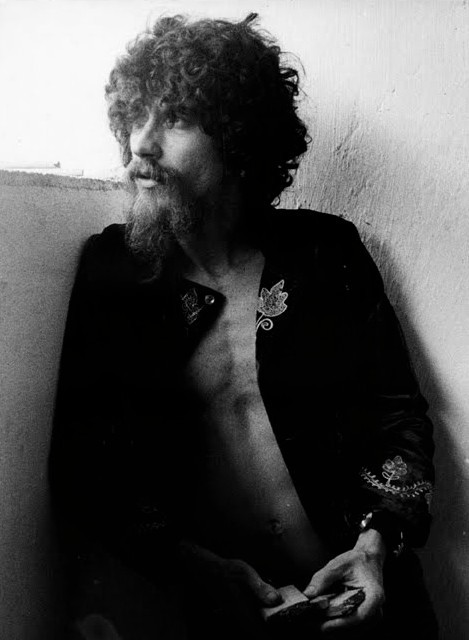
Raul Seixas, circa 1974
24 notes
·
View notes
Text
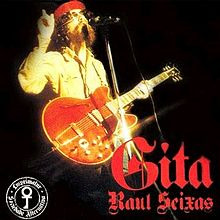
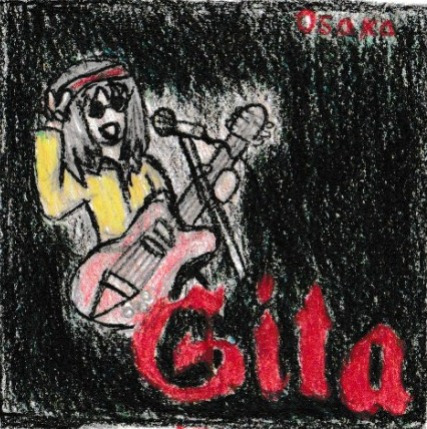
desenho antigo enquanto n arrumo minha caneta da mesa digitalizadora
osaka seixas
6 notes
·
View notes
Text
On November 15, 1889 there was the Proclamation of the Republic in Brazil through a coup. During the next 5 years Brazil was governed exclusively by the military and the period is considered a dictatorship.
We were born, as a republic, as a dictatorship.
From 1937 to 1945 we had another dictatorship, that of Getúlio Vargas, who was nicknamed Father of the Poor and Mother of the Rich. He is a controversial figure in Brazilian history because, despite being a dictator, he was and still is very popular. So much so that years later he was democratically elected and governed the country from 1951 to August 24, 1954, when he committed suicide.
Something I find very interesting about Getúlio Vargas is the letter he wrote, which gave his death a grandiose tone, like a hero who dies in a Greek tragedy. He portrayed himself as a martyr. In his words, "Nothing remains except my blood. I gave you my life, now I give you my death. I choose this way to defend you, for my soul will be with you, my name shall be a flag for your struggle.(...) Serenely, I take my first step on the road to eternity and I leave life to enter History."
Then there was the Military Dictatorship, which began on April 1, 1964 with the support of the United States of America, with the justification that they were protecting the country from the communists. It was a dark and violent period, marked by the loss of rights, torture, persecution, censorship. It lasted until 1985.
In less than 100 years Brazil has gone through three Dictatorships, none as inhuman and violent as the most recent one. And people ask for it back. They extol torturers as if they were heroes. I will never understand this. I will never accept that the first president elected by the people after Dilma, who fought against the dictatorship and was tortured, is the same man who said that Ustra, a torturer, was a hero.
But that's not the point. What I really want to talk about is the music produced in 1964-1985.
Cálice (Chico Buarque and Milton Nascimento).
“Pai, afasta de mim esse cálice”, translated to “Father, take from me this chalice” is a reference to a biblical passage.
Cálice sounds exactly like “Cale-se”, so the phrase is "pai, afasta de mim esse cálice" traduzido para “father, take from me this shut up”. A great pun, in my opinion. Here the “shut up” refers to oppression and censorship.
About the singers: both were censored several times during the Dictatorship. Buarque was exiled and Milton Nascimento was unable to see his son for almost 20 years, if he contravened these orders the military would kill his son.
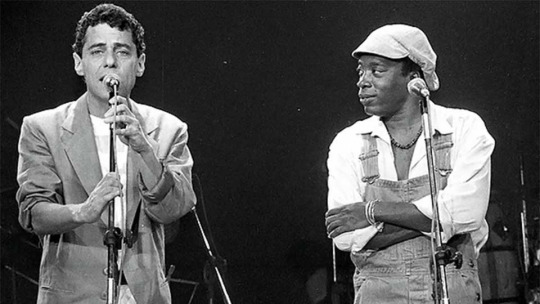
Pra não dizer que não falei das flores (Geraldo Vandré)
This song is an invitation to popular revolt. No one was going to overcome oppression by carrying flowers. The idea of "peace and love" does not make a revolution. It does not prevent people from being tortured and killed.
Geraldo Vandré also opted for exile. Fleeing the country was safer than staying.
"Along the fields there is hunger
Even with abundant plantations
And in the streets,
Streams of doubtful people
Who still take a flower
As the strongest symbol of their convictions
People who still believe that
Flowers can put down the rage of guns
Come on, let's go away
Because it's not wise to be waiting for
The wise does not let the chance pass by
He never waits for it to come
We see armed soldiers
Some of them were ever loved, others were not
Most are equally lost
Holding a gun in hand
In the headquarters, they are taught of
That old pretty lesson
'To die for the sake of the Land'
But to go on without an opinion"

Mosca na Sopa (Raul Seixas)
Raul Seixas wrote this song to mock the Military Dictatorship. He represented himself as the fly, because he always bothered the military.
Raul Seixas was tortured and exiled.
“I am the fly that landed on your soup
I am the fly that got here to abuse you
I am the fly that landed on your soup
I am the fly that got here to abuse you
I am the fly that landed on your soup
I am the fly that got here to abuse you
I am the fly that disturbs your sleep
I am the fly that is flying around in your room
I am the fly that disturbs your sleep
I am the fly that is flying around your room
And don't even bother coming to kill me
Cause I'm resistent even to DDT
Because you kill one and then another one comes to replace me”.

There are many other songs, but I made this text without planning and I wanted to post it soon. Maybe I'll put others later.
The translations of the lyrics of the songs were taken from internet sites, which I consider safer sources than I do.
#dictatorship#military dictatorship#brazil#1964#music#raul seixas#chico buarque#milton nascimento#geraldo vandré#Mosca na sopa#Cálice#Pra não dizer que não falei das flores
11 notes
·
View notes
Text
"Porque quando eu jurei meu amor eu traí a mim mesmo
Hoje eu sei que ninguém nesse mundo
É feliz tendo amado uma vez, uma vez
Eu perdi o meu medo, o meu medo, o meu medo da chuva
Pois a chuva voltando pra terra traz coisas do ar
Aprendi o segredo, o segredo, o segredo da vida
Vendo as pedras que choram sozinhas no mesmo lugar
Vendo as pedras que sonham sozinhas no mesmo lugar "
Medo da Chuva - Raul Seixas
3 notes
·
View notes

